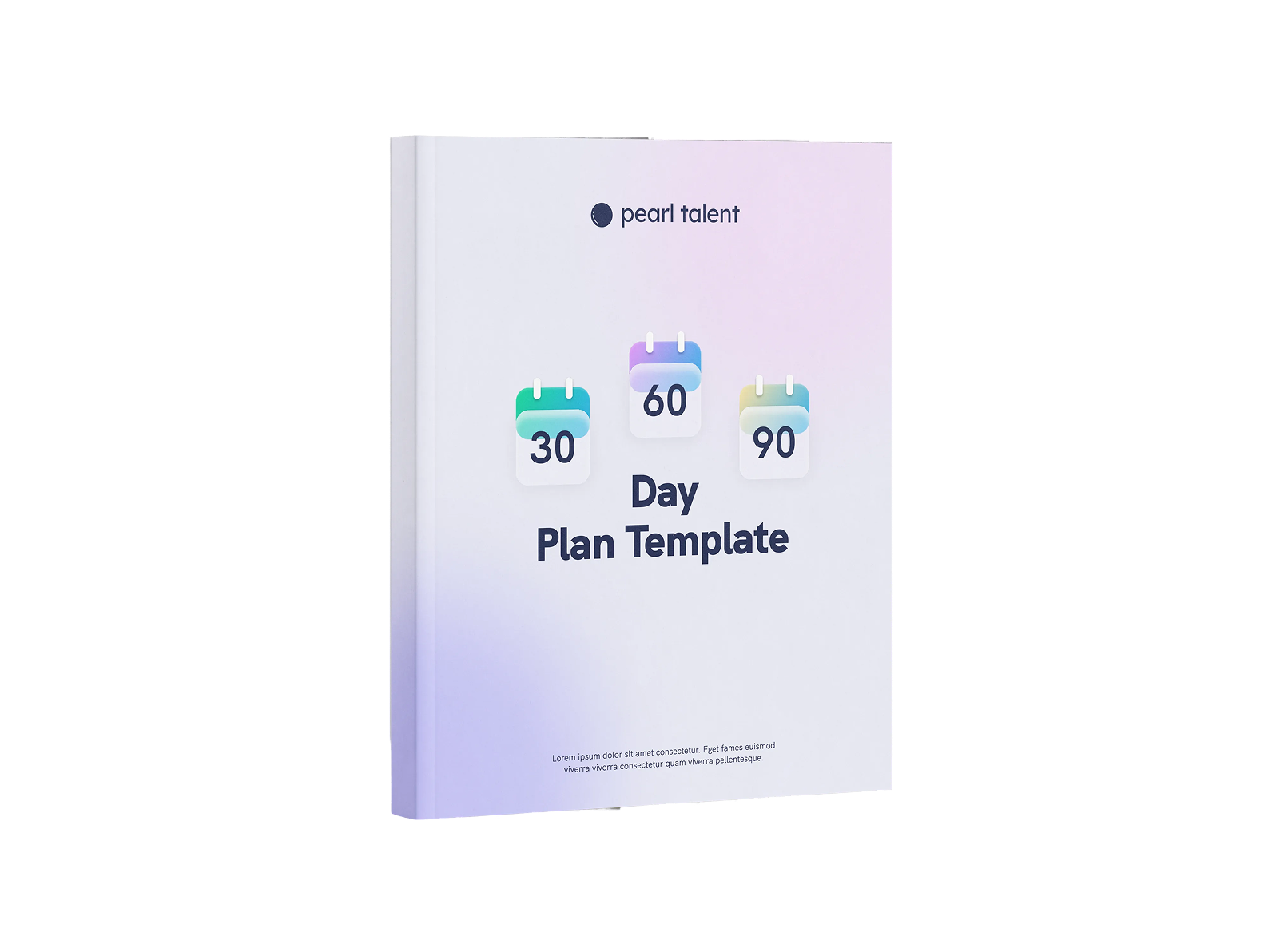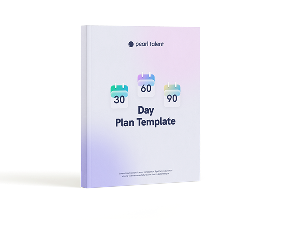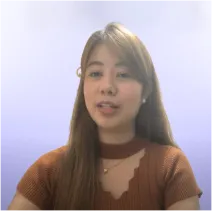Catena is now Pearl Talent! Same mission, new name.
A good software engineer is equal parts technical and creative - blending analytical thinking with innovative problem-solving. They don’t just write code. Software Engineers design solutions, optimize systems, and translate complex problems into clear, effective outcomes.
Landing a software engineering role requires more than just coding proficiency. Employers are looking for candidates who can demonstrate critical thinking, problem-solving skills, and strong communication, alongside technical expertise.
Preparing the right interview questions and understanding how to evaluate responses can make a significant difference in identifying top talent. Whether you’re hiring for a junior, mid-level, or senior position, this guide walks you through 30+ software engineer interview questions, organized by category, along with insights to help you assess candidates confidently and effectively.
What Does a Software Engineer Do?
A software engineer builds and maintains software systems that power applications, websites, and tools used by millions of people. On a daily basis, they write, review, and optimize code; design software architecture; integrate APIs; and troubleshoot complex issues in production environments. They also implement testing frameworks, monitor system performance, and collaborate with product managers, designers, and other engineers to ensure features are delivered efficiently and reliably. Depending on the role, engineers may specialize in front-end development, back-end systems, full-stack solutions, DevOps, or cloud infrastructure.
At Pearl Talent, we help companies hire software engineers with the right technical expertise and problem-solving abilities. We also provide guidance for candidates to understand the specific responsibilities, skills, and workflows expected in modern software engineering roles, so both hiring managers and job seekers can align expectations and succeed.
What does a good Software Engineer candidate look like?
A strong Software Engineer candidate combines technical expertise with problem-solving and collaboration skills. They are proficient in relevant programming languages, understand data structures and algorithms, and have experience with system design and architecture. Beyond writing clean and maintainable code, they approach challenges methodically, optimize solutions for performance and scalability, and understand trade-offs between different approaches. Their ability to communicate complex technical concepts clearly and work effectively in cross-functional teams is just as important as their coding skills.
In addition to technical abilities, a great candidate demonstrates adaptability, continuous learning, and ownership. They stay up to date with emerging technologies, are willing to learn new tools or frameworks, and take responsibility for tasks from concept to deployment. They show accountability, contribute positively to team culture, and align with the company’s values and mission. Ultimately, a top software engineer balances technical proficiency, clear communication, and a proactive, collaborative mindset, making them a valuable and reliable team member.
Common Software Engineer Interview Questions
Experiential
This category of questions helps an interviewer understand a candidate’s past work experiences and gives them the opportunity to provide more depth about their projects and adding context with insights beyond what appears on a resume or portfolio.
- Explain to me your toughest project and the working architecture.
- What have you built?
- What would your previous boss say your biggest strength was?
- Tell me about a time when you had to debug a complex production issue.
- Tell me about a time when you had to learn a new technology quickly for a project.
- Describe a project you’re most proud of.
Tips for answering: Use the STAR method (Situation, Task, Action, Result) to structure your answers and focus on specific challenges, solutions, and measurable impact. Highlight both your technical skills and problem-solving abilities, while also emphasizing teamwork and collaboration.
Hypothetical
This category of questions assesses how a candidate approaches problem-solving, decision-making, and interpersonal situations in scenarios they may encounter on the job.
- If someone has a different viewpoint on how to approach a project, such as using a different programming language, how would you handle this situation?
- Describe a technical concept to your grandmother or a kindergarten class.
- How would you handle a situation where you disagree with your manager's technical decision?
- How would you mentor a junior developer who is struggling with coding practices?
Tips for answering: Focus on clear reasoning and your ability to communicate complex ideas simply. Demonstrate collaboration, empathy, and adaptability in your approach to challenges.
Behavioral
This category evaluates past behaviors to predict future performance and how a candidate interacts in workplace situations.
- Give an example of a time you overcame a difficult challenge at work.
- Describe a situation where you had to meet a tight deadline.
- Tell me about a time when you received constructive feedback and how you responded.
- Give an example of how you resolved a conflict within a team.
- Describe a situation where you took initiative to improve a process or system.
Tips for answering: Focus on specific actions you took, the reasoning behind your decisions, and the results or impact. Be honest, concise, and reflective, showing self-awareness, adaptability, and collaboration skills.
Technical
This category assesses your knowledge, learning habits, and ability to stay current with technology.
- How do you stay up to date with the latest technologies?
- Explain a challenging technical problem you solved.
- Describe your experience with [relevant programming language/framework].
- How do you approach debugging or troubleshooting complex systems?
- Discuss a time you optimized code for performance or scalability.
- Explain a technical concept you recently learned and applied.
Tips for answering: Focus on practical experience and problem-solving ability, and provide examples that show both technical competence and learning agility.
Company Culture
This category determines how well a candidate aligns with the company’s values and work environment.
- Describe a time you contributed to a team’s culture or morale.
- How do you handle feedback and criticism at work?
- Give an example of working effectively in a cross-functional team.
- How do you manage priorities and balance multiple projects?
- Describe a situation where you had to adapt to change at work.
Tips for answering: Demonstrate adaptability, teamwork, and alignment with company values, and provide examples that show your positive impact on team dynamics.
Personality
This category helps interviewers understand who you are beyond your technical skills. This is the opportunity to let more of your personality shine and build a relationship with the interviwer. Feel free to discuss topics that you believe make you a more well rounded person, but always try to relate back to the role you’re applying for.
- Tell me about yourself.
- What motivates you in your work?
- How do you handle stress or challenging situations?
- How do you maintain work-life balance?
- What books, movies, shows, blogs, newsletters, or podcasts do you consume to educate yourself outside of work?
Tips for answering: Be authentic, self-aware, and reflective, while highlighting qualities that make you a strong team member and lifelong learner.
Final Questions
This category often comes at the end of an interview to assess interest, fit, and expectations.
- Why are you interested in this opportunity?
- What are your salary expectations?
- Why are you looking to leave your current company?
- Why should we hire you?
- Do you have any questions for me?
Tips for answering: Show enthusiasm for the role, align your goals with the company’s mission, and ask thoughtful questions that demonstrate your engagement and curiosity.
Questions Software Engineer Candidates Should Ask the Interviewer
When you come prepared for an interview with thoughtful and well researched questions, you demonstrate curiosity, engagement, and enthusiasm for the role while also gathering important information about the role, team, and company culture.
Examples of Questions to Ask:
- Can you describe the team structure and how engineers collaborate on projects?
- What does a typical day or week look like for someone in this role?
- How do you measure success for this position?
- What are the company’s short-term and long-term technical priorities?
- What opportunities exist for professional growth and learning?
- Can you tell me about the code review and development processes?
- How does the company handle technical debt and system improvements?
- What are the biggest challenges the team is currently facing?
- How do you support work-life balance and employee well-being?
- What is the next step in the interview process?
- Why are you hiring for this position now?
Tips for asking: Ask thoughtful, role-specific questions that show your interest in the team, the work, and the company. Use this opportunity to clarify expectations, understand challenges, and assess cultural fit.
How to Prepare for Your Software Engineer Job Interview
- Practice coding daily – Use platforms like LeetCode, HackerRank, or CodeSignal.
- Review fundamentals – Make sure data structures, algorithms, and OOP concepts are solid.
- Mock system design sessions – Practice explaining your approach verbally.
- Behavioral prep – Prepare stories for teamwork, conflict, and leadership.
- Research the company – Know their tech stack, culture, and products.
Preparation isn’t just about memorizing answers; it’s about cultivating a mindset of problem-solving, curiosity, and clear communication. Approach the interview with an attitude of excitement ready to demonstrate how you think, adapt, and contribute to real-world challenges. This combination of enthusiasm, insight, reflection, and authenticity is what sets standout candidates apart.
Practicing coding challenges, reviewing core concepts, and preparing for behavioral and system design questions, prepares you to confidently demonstrate both your technical expertise and problem-solving skills. Researching the company and understanding its culture allows you to tailor your answers and show that you’re a strong fit for the team. With focused preparation and genuine engagement, you can enter your interview ready to impress, contribute, and succeed.
Confidence is key to any interview, and over time, confidence grows with experience. Always be honest about what you know and what you don’t, and be enthusiastic about your goals and the achievements you’re proud of. Don’t be afraid to let your personality shine. Showing up as your authentic self will always make a lasting impression and direct you to aligned opportunities.
Overwhelmed with the Hiring Process?
Let us handle the vetting, payroll, and management, so you can focus on results. Hire a pre-vetted Software Engineer for up to 60% less with Pearl Talent.
Want to Join the Pearl Talent Network?
If you’re an experienced Software Engineer looking for steady, rewarding remote opportunities- apply today and start connecting with clients in need of your expertise.
Frequently Asked Questions
What qualifications should I look for in a software engineer candidate?
Look for candidates with a combination of technical expertise, problem-solving skills, and experience building real-world software. A degree in computer science, software engineering, or a related field can be valuable but isn’t always required. A well rounded portfolio of projects is more effective. Essential qualifications include proficiency in relevant programming languages, familiarity with development frameworks, experience with version control (like Git), and exposure to system design or cloud infrastructure. Candidates who have contributed to meaningful projects, collaborated on cross-functional teams, or worked in production environments typically ramp up faster in demanding roles.
How many years of experience should a software engineer have?
The required experience depends on the level of the role. Junior software engineer positions often require 0-2 years of professional experience or strong internship/project work. Mid-level roles typically require 3-5 years of hands-on experience, and senior or lead roles usually expect 5-10 years of progressively responsible development experience. Industry or domain-specific experience can also be valuable, particularly for specialized roles in areas like fintech, AI, or enterprise software.
What soft skills are most important for software engineers?
Strong communication, collaboration, and adaptability are essential soft skills. Software engineers must be able to explain technical concepts clearly, work effectively in cross-functional teams, and respond to changing requirements. Problem-solving under pressure, resourcefulness, and curiosity are also critical traits. Candidates who proactively identify improvements, mentor peers, and balance technical rigor with collaboration are often the most successful.
What are red flags to watch for when interviewing software engineer candidates?
Red flags include vague answers about past projects, inability to explain technical decisions, and poor communication. Be cautious of candidates who struggle with basic coding concepts, seem uncomfortable collaborating, or downplay the importance of testing and code quality. Other warning signs include inconsistent work history without explanation, lack of references or verifiable project experience, or difficulty articulating problem-solving approaches. Reliability, transparency, and a growth mindset are essential traits for top software engineering talent.
Originally Published
November 7, 2025




.svg)


















